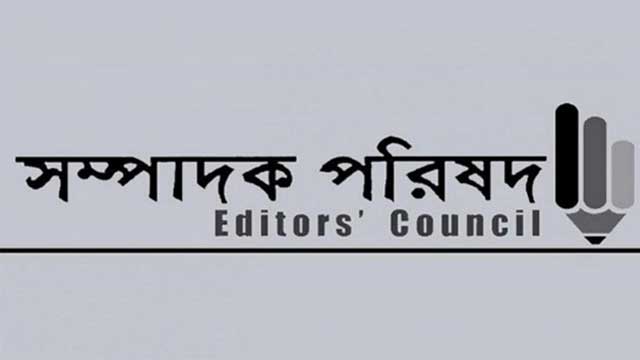The government has recently declared 29 government institutions including the offices of the president and prime minister as critical information infrastructures
The ICT Division’s decision to declare 29 organizations as critical information infrastructure under the Digital Security Act obstructs media workers’ right to information, the Editors’ Council has said.
The council’s President Mahfuz Anam and General Secretary Dewan Hanif Mahmud issued the statement in a press release on Wednesday.
According to the DSA, illegal access to computers, digital devices or networks that are considered critical information infrastructure is a punishable offence. The provision is in place in order to protect institutions that handle sensitive data, which may adversely affect public health, national and financial security, or sovereignty if leaked.
The government recently declared 29 government institutions, including the offices of the president and prime minister, as critical information infrastructure in order to protect sensitive and important information from cyber-attacks.
The ICT Division recently issued a notification in this regard, declaring these institutions as CII (Critical Information Infrastructure) in accordance with the provisions in Section 15 of the Digital Security Act 2018.
In addition to the offices of the president and prime minister, the institutions declared as critical information infrastructure include the Bangladesh Bank, National Board of Revenue (NBR) and Bangladesh Securities and Exchange Commission (BSEC).
The list also includes the Bridges Division, Department of Immigration and Passports, National Data Centre of Bangladesh Computer Council, National Identity Registration Wing of Election Commission Secretariat, Biman Bangladesh Airlines, Bangladesh Power Development Board, Titas Gas Transmission and Distribution Company Ltd, Bangabandhu Satellite Company Ltd, and other government entities.
According to section 16(1) of the DSA, the director general of the Digital Security Agency shall inspect any critical information infrastructure from time to time to ensure that the provisions of the Act are being properly followed.
Illegal access to critical information infrastructure is punishable by imprisonment for up to seven years, a fine of up to Tk25 lakh, or both.
Illegal entry into the infrastructure and causing damage or attempting to cause damage is punishable with imprisonment for 14 years, a maximum fine of Tk1 crore, or both.
Besides, if a person repeats the offence, there is a provision for life imprisonment, a fine not exceeding Tk5 crore, or both.
The Editors’ Council feels that since the 29 institutions declared critical information infrastructures are related to public interest only, obstructing access to the information of the institutions is a violation of the journalist's right to information. There would be no opportunity to get information related to public services and ensure they are actually being provided, which is a threat to independent journalism.
At the same time, this notification will encourage internal corruption, irregularities and unaccountability in the institutions concerned.
According to the council, a detailed clarification is required since the right to information is currently recognized as a fundamental right under the Right to Information Act.
It is to be noted that the Digital Security Act 2018 is already creating obstacles in the field of freedom of speech and free intellectual practice, including social media. Journalists, jurists, human rights activists, representatives of civil society, and several government ministers and members of parliament have continued to express various suggestions, recommendations and concerns about the changes, modifications, separations and additions to the law.
Earlier, the Editor’s Council had issued a statement expressing concern about the amendment of the Press Council Act without consultation with stakeholders.
The statement further said that the notification issued to announce the 29 institutions as critical information infrastructure is creating new pressure and obstacles for independent journalism.
In view of this, the Editors’ Council strongly demands clarification by removing the ambiguity of the notification issued.
On Tuesday, a meeting presided over by the council’s president Mahfuz Anam was attended by Prothom Alo Editor Matiur Rahman, Manab Zamin Editor Matiur Rahman Chowdhury, New Age Editor Nurul Kabir, Ittefaq Editor AMM Bahauddin, Jugantor Editor Saiful Alam, The Financial Express Editor Shamsul Haq Zahid, Bonik Barta Editor Dewan Hanif Mahmud, Karatoa Editor Md Mozammel Hoque, Samakal Editor (acting) Muzzammil Husain, Desh Rupantor Editor (acting) Mustafa Mamun, and Sangbad Executive Editor Shahriar Karim. Azadi Editor MA Malek virtually attended the meeting through video conferencing.





